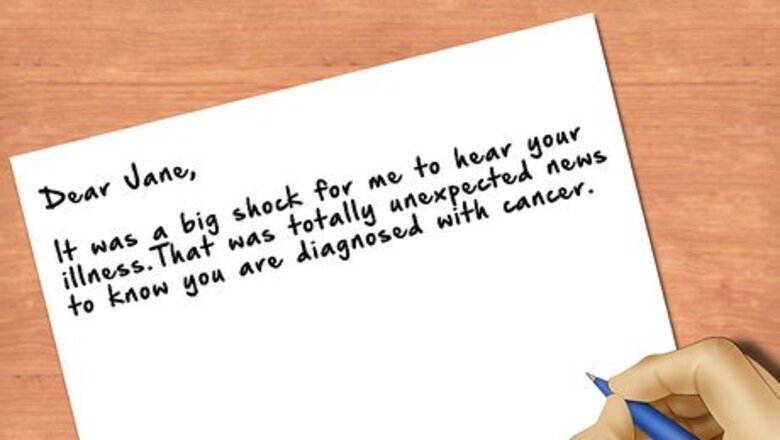
views
Expressing Your Support and Care
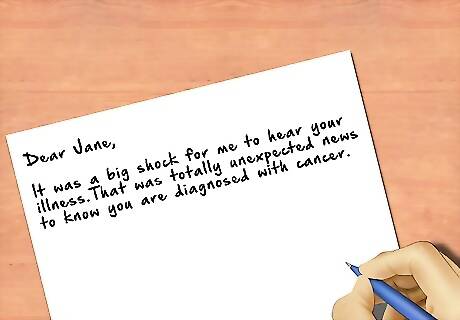
Say something. When someone you know is diagnosed with cancer, you might feel completely numb or unable to process the situation. It is perfectly normal to be sad and upset about the situation, and not know what to do, but it’s important that you don’t drift away from your friend. Even if you don’t know what to say or how to react, make an effort to reach out and show your friend that you are there. Just sending a short note or email at first saying you have heard the news and are thinking of them can help your friend feel a bit less alone. You could say, “I’m sorry this has happened. I’m thinking of you.” If you don’t know what to say, it’s okay to admit this. Say “I’m not sure what to say, but I want you to know that I care and I’m here for you.”
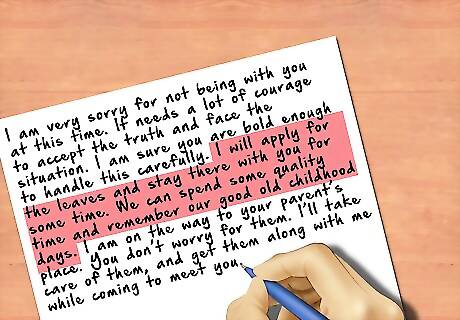
Offer emotional support. Everybody is different, but someone who has just been diagnosed with cancer will probably be feeling very lonely. It’s imperative that you show that you are there to support and help in any way you can. You can express your support by saying “Please let me know how I can help.” Just being a good listener can make a difference to somebody. Say something like, “If you want to talk, I’m there for you.” While you should offer to listen, you shouldn’t press her to talk or pass on more information to you about the diagnosis.
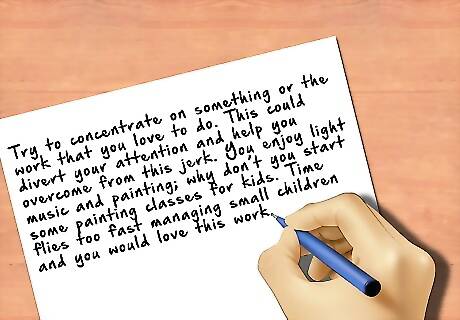
Offer practical support. In your letter will you want to show that you are there to help in any way you can. This support can be practical as well as emotional. In some cases, practical help can be a big help to a friend suffering from cancer. Offering to do everyday tasks such as helping to look after children and pets, or washing and cooking, can really help somebody who is tired or feeling weak. Keep in mind that your friend may not want to feel that she is putting you out by asking for something. Try to help in a way that looks casual, even if it isn’t. For example, if you are offering to pick the kids up from school, you could say “I’m always in the area when they finish school and could pick them up on the way home.” Don’t just say, “would you like me to pick up your kids from school?” Make a direct offer, like "Let me pick up the kids from school for you."
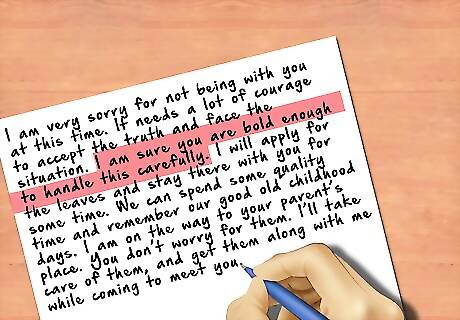
Be encouraging. It’s important to express encouragement and not be pessimistic or too downbeat. It can be difficult to find the right balance, as it’s equally important not to display false optimism or downplay the seriousness of the situation. Acknowledge the situation, but always express your support and encouragement. You could say, “I know this is an incredibly difficult journey you are on, but I am here to support you and help you in any way I can to help you get through it.”
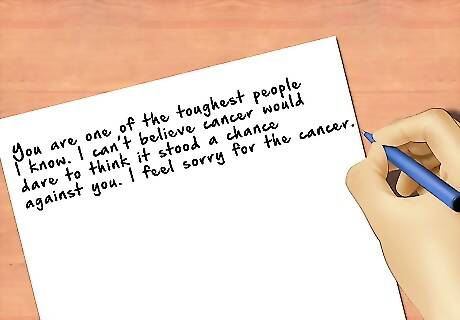
Use humour when appropriate. Depending on your friend and your relationship, humour might be a good way to show encouragement and support while also helping your friend smile. This can be difficult to achieve in a letter when you are not able to judge the reaction and body language of the other person. For example, joking about something like hair loss can be a good way to relieve stress. Use your judgement, and if in doubt avoid making any jokes in the letter. As the person goes through treatment, they may need some easygoing entertainment. Use comedy as a form of relief. Watch a funny movie, visit an improv night, or watch a comedian on the internet together.
Avoiding Insensitivity or Offence
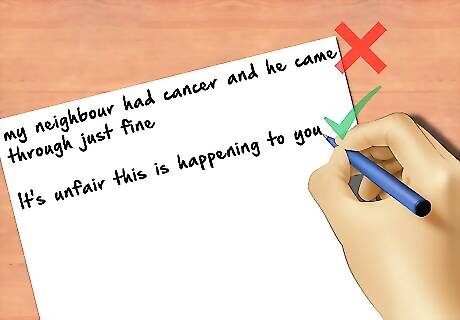
Remember that each cancer journey is different. You might know someone who has been through cancer, but you shouldn’t try to relate that experience to your friend’s diagnosis. Try to avoid sharing stories about people you know who have suffered from cancer, and remember that each case is different. Instead you can let your friend know that you are familiar with cancer up to a point, and let your friend decide whether or not to ask you to elaborate. Saying something like, “my neighbour had cancer, and he came through just fine” is not that likely to reassure your friend. You may give the impression that you are detracting attention from her when you are trying to show support and solidarity. While you may want to say the right thing to your friend, it is more important that you can be a good listener for the other person. They may tell you what kind of support they need.
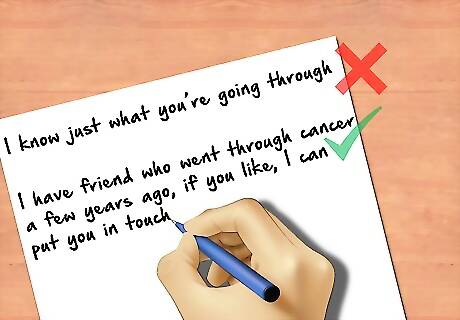
Don’t say you understand what your friend is going through. You might think you are expressing support and solidarity, but unless you have been through cancer, you do not know how your friend will be feeling, so don’t say you do. If you say something like “I know just what you’re going through,” or “I really know how you feel” it might seem like you are not taking it seriously enough. If you try to equate your friend's diagnosis to a difficult period is yours or somebody else’s life; it can come across badly and be insensitive. If you know somebody who has been through cancer, you can mention this and offer to introduce them, but don’t push it. You can just say, “I have friend who went through cancer a few years ago, if you like, I can put you in touch.” You can also offer sympathetic statements of support like "I can't imagine how hard this is on you" or "if you need me, I am here for you."
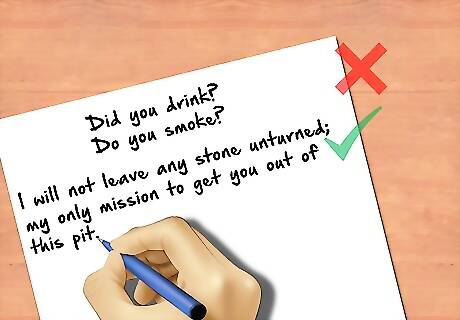
Don’t offer advice and don’t judge. You might think it is helpful to offer advice on how to deal with cancer, or how somebody you know was helped by some alternative treatment. Your friend, however, will not want to read a long story about something that doesn’t really have anything to do with her. Offering advice about something you have no clear experience of us, no matter how well meaning, can appear insensitive. Leave the advice to the doctors. This is also not the time to ask questions about your friend’s lifestyle or habits. Maybe your friend is a long-time smoker, who you spoke to about lung cancer countless times. That doesn’t matter now. Just focus on supporting her and being sensitive. No matter what your beliefs are, try not to convince the person to try a certain type of treatment. Whether they are going through conventional or alternative treatments, it is their decision.
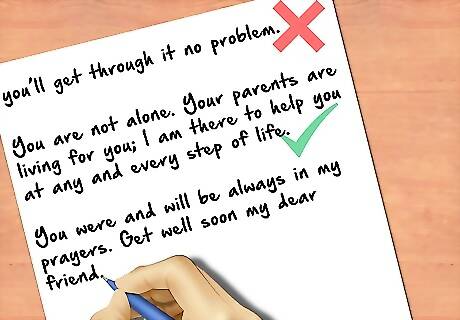
Don’t be blindly optimistic. While it is important to be positive, you shouldn’t say something like “I’m sure you’ll be fine,” or “you’ll get through it no problem.” You may just be trying to show support, but what you say might be interpreted as belittling the seriousness of the situation. You may not know all the facts about the diagnosis and the prognosis. Don’t push your friend to reveal more about the prognosis than she has already. Rather take the time to educate yourself as much as possible independently. You can talk to friends or family to find out more information, but respect your friend’s privacy at all times.




















Comments
0 comment